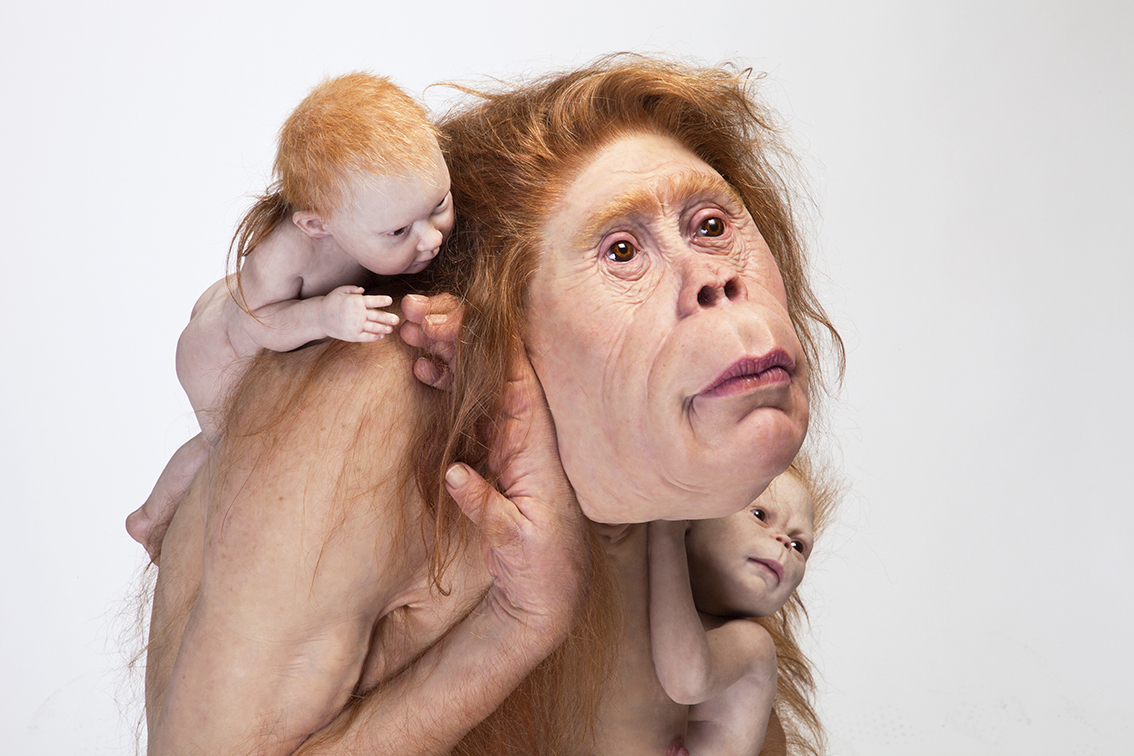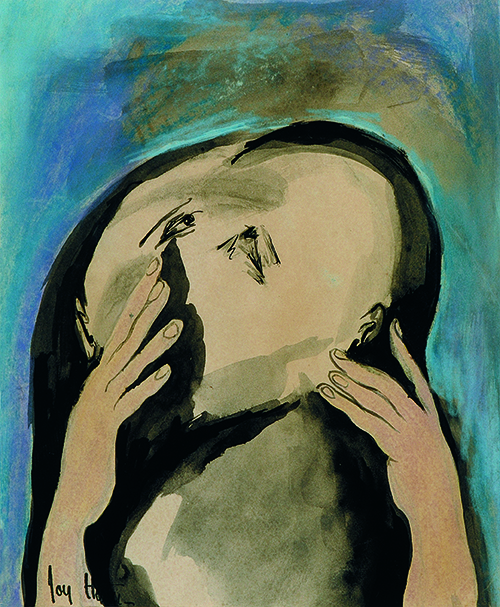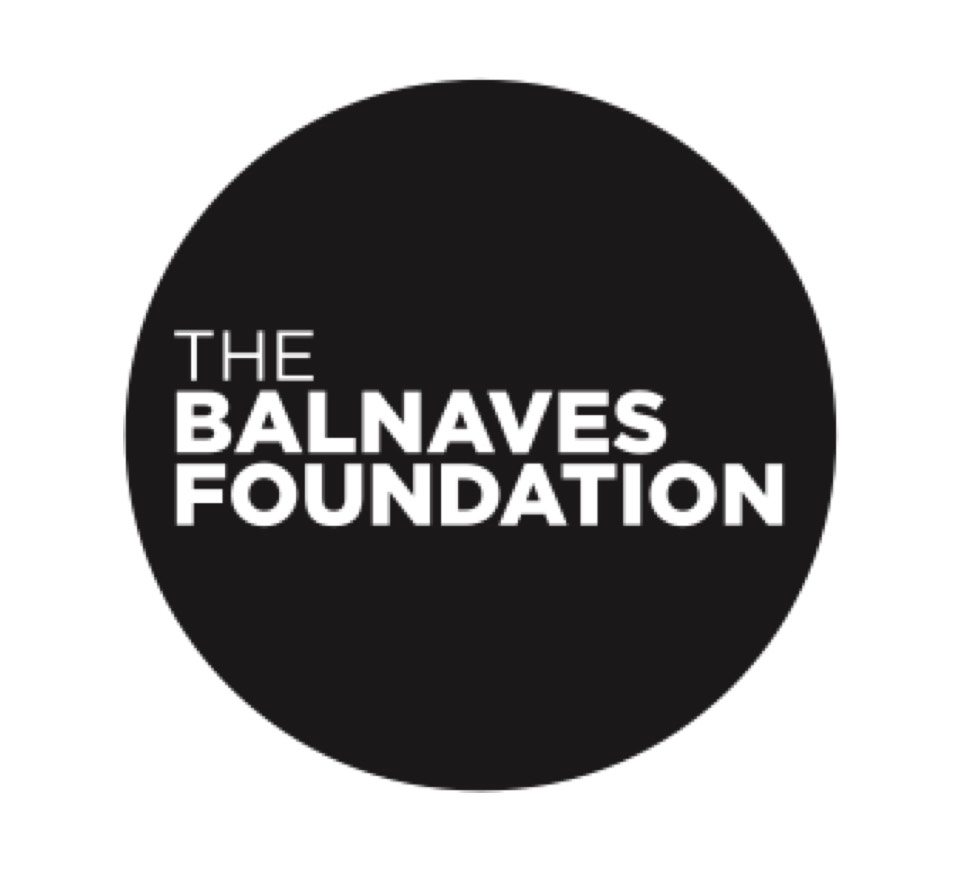Patricia Piccinini & Joy Hester:
Through love …
Patricia Piccinini & Joy Hester: Through love … reveals the shared explorations of love, intimacy and relationships in the work of two of Australia’s most exceptional artists. This is the first exhibition to explore the conceptual links between the works of Patricia Piccinini and Joy Hester (1940–1960)—an artist whom Piccinini has long admired. Hester’s expressionistic blended figures, drawn with ink on paper, often share an eye, mouth or shoulder. Piccinini’s works intermingle human, non-human and hybrid forms. The works in this exhibition share an interest in various kinds of love as expressed through the coupling of male and female; mother and child; child and animal; and animate and inanimate forms. Love is seen as complex, intimate and entangled.
Patricia Piccinini was born in Sierra Leone in 1965 and lives and works in Melbourne. Her surreal drawings, hybrid animals and vehicular creatures question the ways that contemporary technology and culture changes our understanding of what it means to be human and wonders at our relationships with – and responsibilities towards – that which we create. Her work has been exhibited extensively in Australia and internationally including in Japan, Korea, USA, London, Brazil and Spain. In 2003 she represented Australia at the 50th Venice Biennale. She is represented by Tolarno Galleries, Melbourne, Roslyn Oxley9 Gallery, Sydney and Hosfelt Gallery, San Francisco.
Artist and poet Joy Hester was born in 1920 in Melbourne. A member of the ‘Heide circle’, Hester developed a close friendship with John and Sunday Reed. She and her fellow artists, including her first husband Albert Tucker, Sidney Nolan, Arthur Boyd, John Perceval and Danila Vassilieff became known as the Angry Penguins. Drawing on influences from Edvard Munch, German Expressionism and surrealism to contemporary footage of the horrors of the Second World War, Hester developed her own highly distinctive psychologically-charged form of figuration. During her life time she had only three exhibitions, and participated in the Contemporary Art Society group shows. Since her untimely death in 1960 her work has been recognised with major publications and exhibitions.
This exhibition has been generously sponsored by the Museum’s Summer Exhibition Series partner, the Balnaves Foundation.


